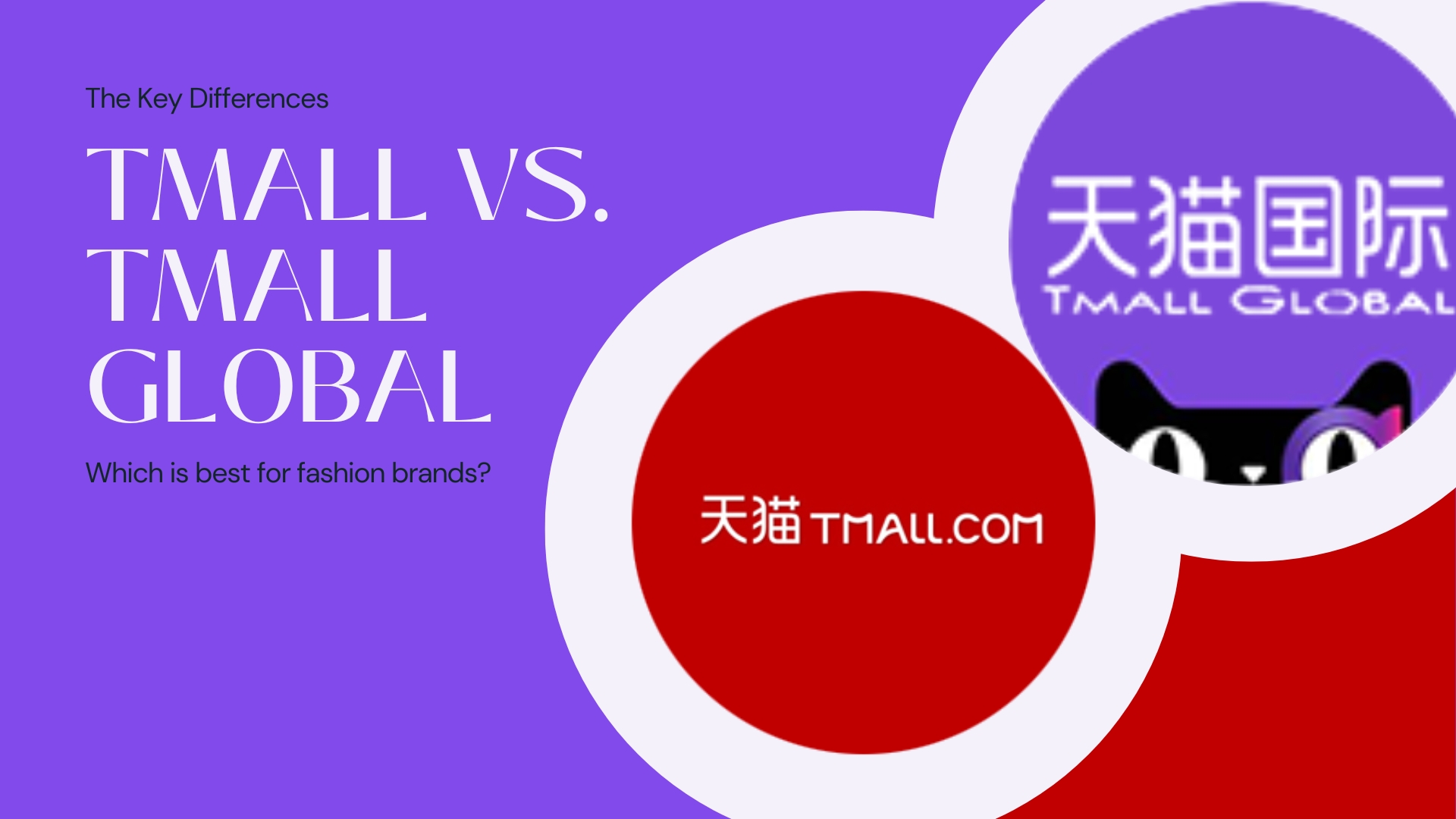When it comes to selling fashion brands, there are two primary platforms in China: Tmall and Tmall Global. Both have their pros and cons, but which one is the best option for your business? Here’s a comparison of the two platforms to help you decide.
Differences Between Tmall and Tmall Global
As the world’s leading online retail platform, Tmall provides a wealth of opportunities for fashion brands looking to enter the Chinese e-commerce market. However, with Tmall Global launched in 2008, there is some confusion about which platform is best suited for fashion brands.
Tmall is the largest online retail platform in China, with over 500 million monthly active users. Tmall offers a wide range of products and services, including apparel, home goods, electronics, food, and more. Tmall Global is a platform specifically for cross-border e-commerce, which allows brands to sell products to consumers without a psychical presence in Mainland China.
Which platform is best for your brand?
Business Model
The Tmall business model is a B2C model, where Tmall acts as a middleman between brands and consumers. Tmall takes a commission on every sale made through their platform.
Tmall Global uses a C2C model, where Tmall Global is the direct seller to Chinese customers. This means that Tmall Global takes on the risk of inventory, and is responsible for shipping and handling products to consumers.
Logistics
Tmall has a wide network of warehouses and logistics partners across China. Tmall Global stores have access to Tmall’s logistics network.
However, Tmall Global does not have its own warehouses in China. This means that Tmall cross-border brands need to ship their products to Tmall’s warehouses before they can be sold to consumers.
This can be a significant cost for international merchants, as they need to ship their products to China market and pay for storage at Tmall’s warehouses.
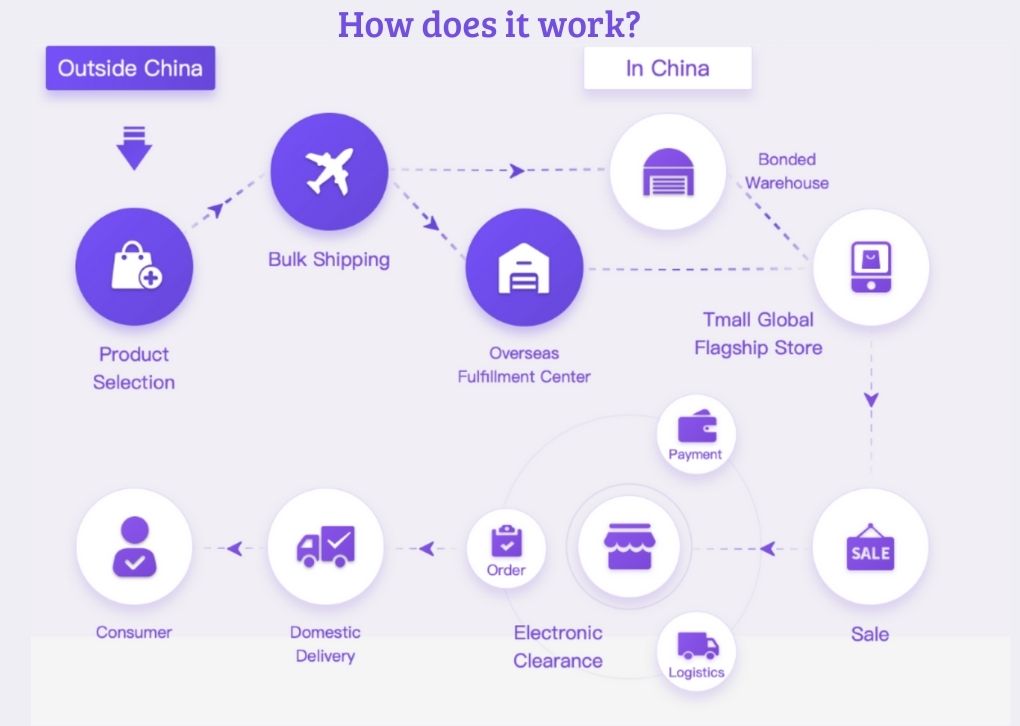
Cost Implications
Tmall flagship stores pay 2-5% of the total transaction value, plus a monthly platform fee.
There is no monthly platform fee for a flagship store on Tmall Global, but the commission is higher, at 10-20% of the total transaction value.
In addition, international merchants need to pay for shipping and handling costs, as well as storage fees at Tmall’s warehouses.
Brand Entry Requirements
To sell on Tmall, brands need to have a registered company in China and a Chinese business license, as it’s a platform for local Chinese entities. Tmall also requires that brands have a dedicated Tmall team in place to manage the Tmall store.
Tmall Global does not have any specific brand entry requirements, but foreign companies need to be able to ship products to China from abroad or from Chinese free trade zones.
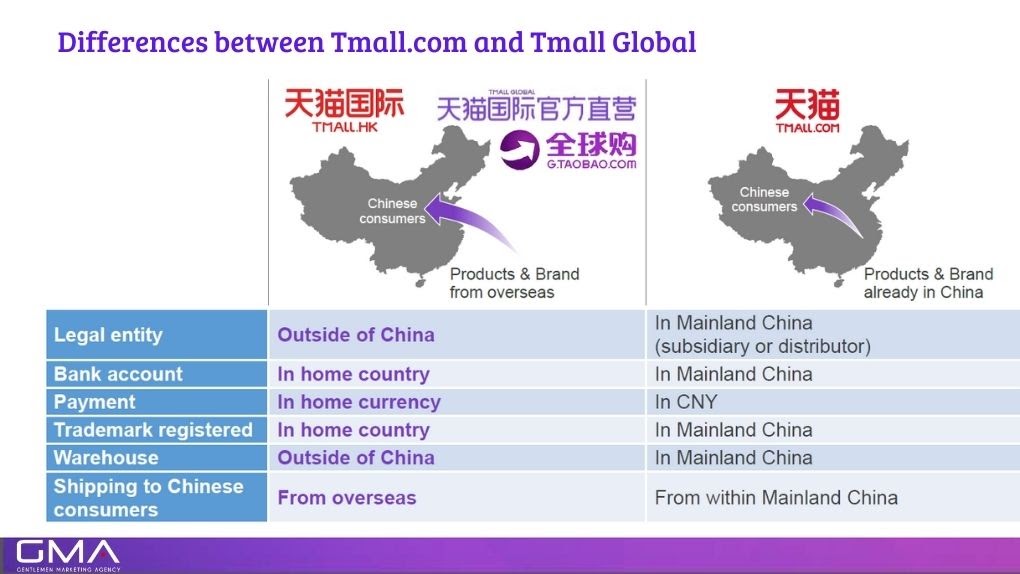
Leading Global Brands Using Tmall Global
Aside from clothing and accessories which are the best-selling categories in Tmall Global, many other products have been top sellers on Tmall Global.
Some of the leading global brands using Tmall Global include:
- Apple
- Microsoft
- Nike
- Levi’s
- New Balance
- Gap
- And many more.
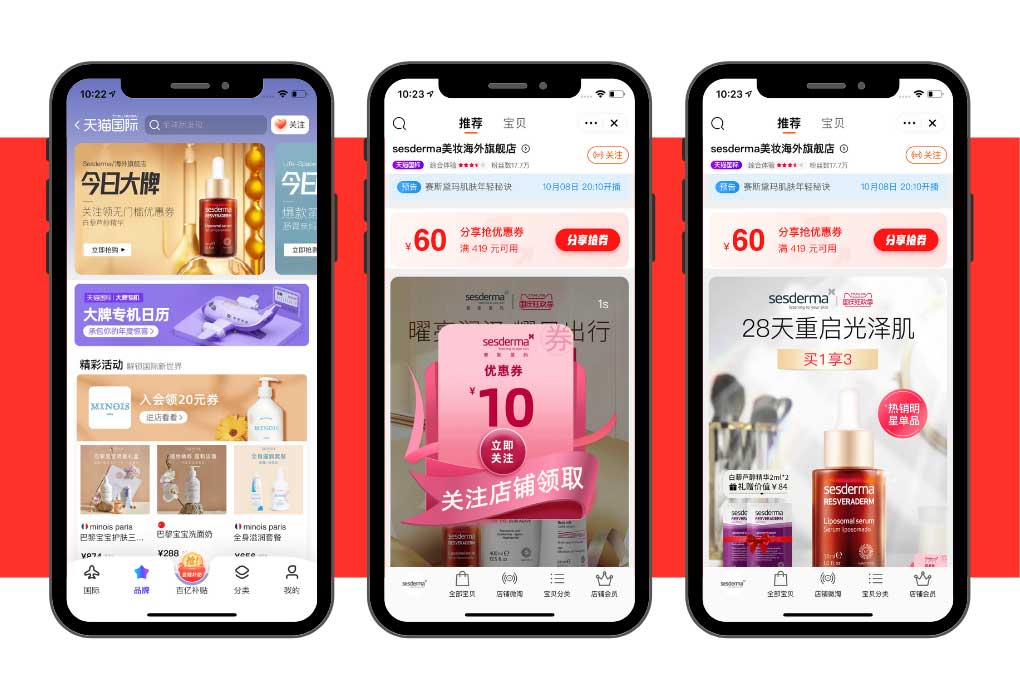
Tmall vs Tmall Global FAQ
What Are the Benefits of Selling on Tmall Global?
There are several key benefits of selling on Tmall Global for fashion brands:
- Tmall Global offers a direct path to China’s massive and growing online consumer base.
- The platform provides an effective way to reach affluent and fashion-conscious consumers in China. Tmall Global shoppers are some of the most active online shoppers in the world, spending more than twice as much as the average global internet user.
- Tmall Global is a well-recognized and trusted brand in Mainland China. It’s also the most popular cross-border platform in China’s e-commerce market.
What Are the Disadvantages of Selling on Tmall Global?
There are a few potential disadvantages of selling on Tmall Global for fashion brands to be aware of:
The Tmall Global platform is only available in Chinese so it’s best to find a local Tmall partner to navigate this cross-border eCommerce site. This can be a barrier for international brands that don’t have a good understanding of the Chinese market or who don’t have the resources to invest in translating their product listings and marketing materials.
Tmall Global charges a commission on each sale. The commission rate is currently 2.8% for fashion brands, which is higher than the commission rates charged by other Tmall channels.
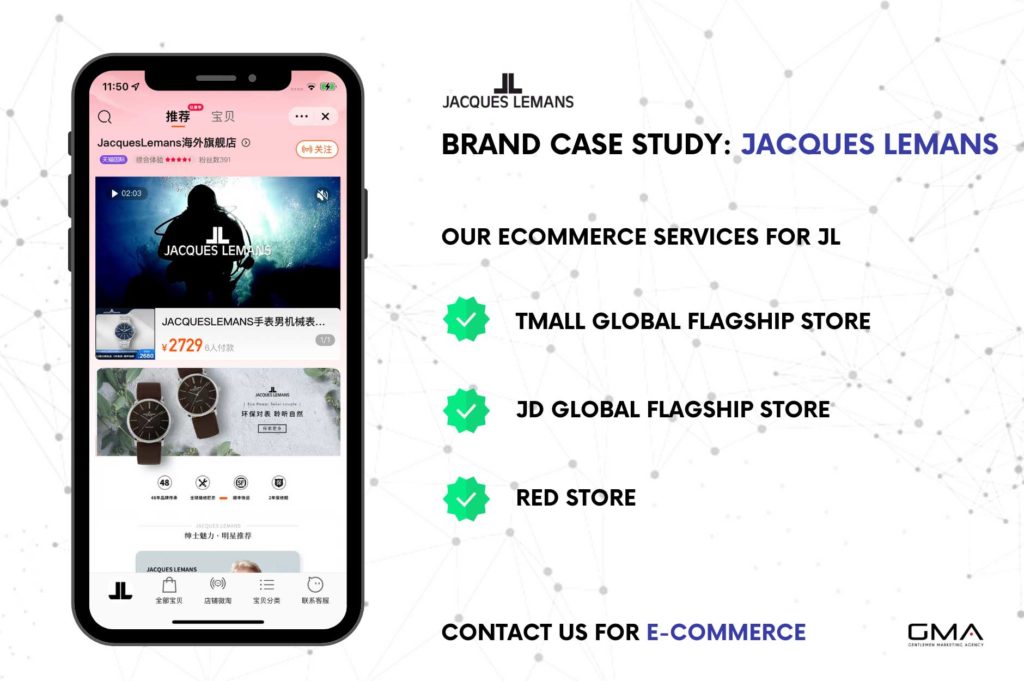
Why Do Certain Brands Have Stores on Both Tmall and Tmall Global?
Some brands choose to sell on both Tmall and Tmall Global because they want to reach as many potential customers as possible. Tmall has a larger user base than Tmall Global, so it can be a good option for brands that are looking to generate awareness and build up their customer base in China.
Tmall Global can be a good option for brands that are looking to reach more affluent and fashion-conscious shoppers. Tmall Global shoppers tend to spend more money than the average Tmall shopper, so brands that are focused on generating sales may prefer Tmall Global.
It’s also worth noting that Tmall and Tmall Global are operated by different companies. Tmall is operated by Alibaba Group, while Tmall Global is operated by Cainiao Network, a company that is majority-owned by Alibaba Group. This means that Tmall Global has access to Alibaba Group’s massive logistics and delivery infrastructure, which can be helpful for brands that are looking to reach shoppers in remote areas of China.
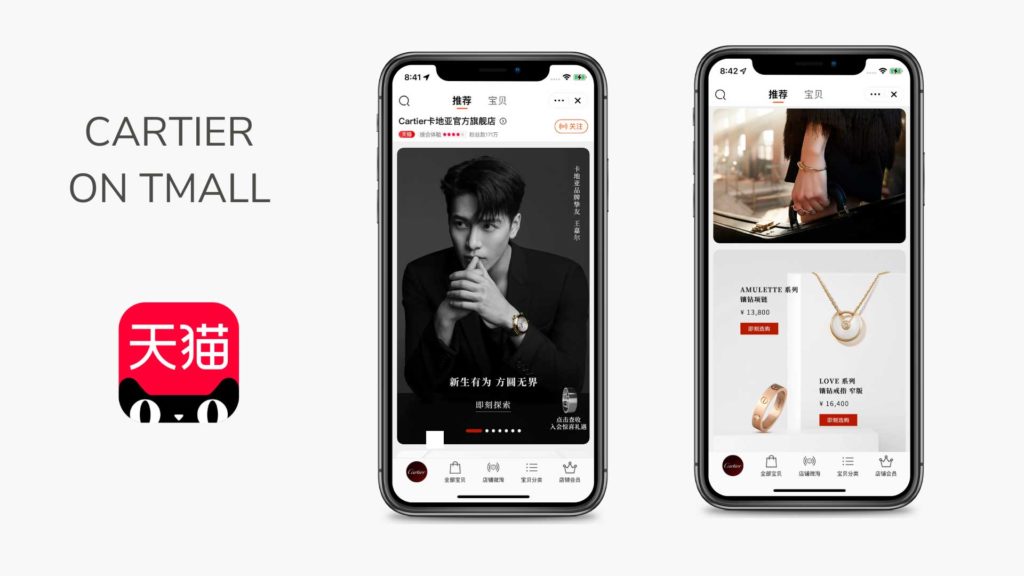
Which Product Categories Are More Appropriate for Tmall Global Than for Tmall?
The Tmall Global platform is designed for international brands that are looking to sell to Chinese shoppers. Tmall Global is a good option for fashion brands, as well as for brands in other categories such as electronics, home and garden, food and beverage, and health and beauty.
Some categories are more appropriate for Tmall than Tmall Global. Tmall is a better option for brands that are focused on generating awareness and building up their customer base in China. Tmall is also a good option for brands that sell products that are not available on Tmall Global, such as local Chinese brands or products that require special approval from local authorities.
Tmall Global or Tmall, Which One Should I Choose?
If we will talk about fashion brands, Tmall Global is a better choice since Tmall only sells larger Chinese brands and Tmall Global offers an international section where foreign brands can sell imported products.
Tmall is best for companies who want to focus on the Chinese domestic market. Tmall has a wide range of features that cater to Chinese consumers, from customer service to payment options.
Tmall Global is best for companies who want to sell their products to Chinese consumers but don’t have a Chinese corporate entity. Tmall Global offers a way for foreign brands to reach Chinese consumers without setting up shop in China.
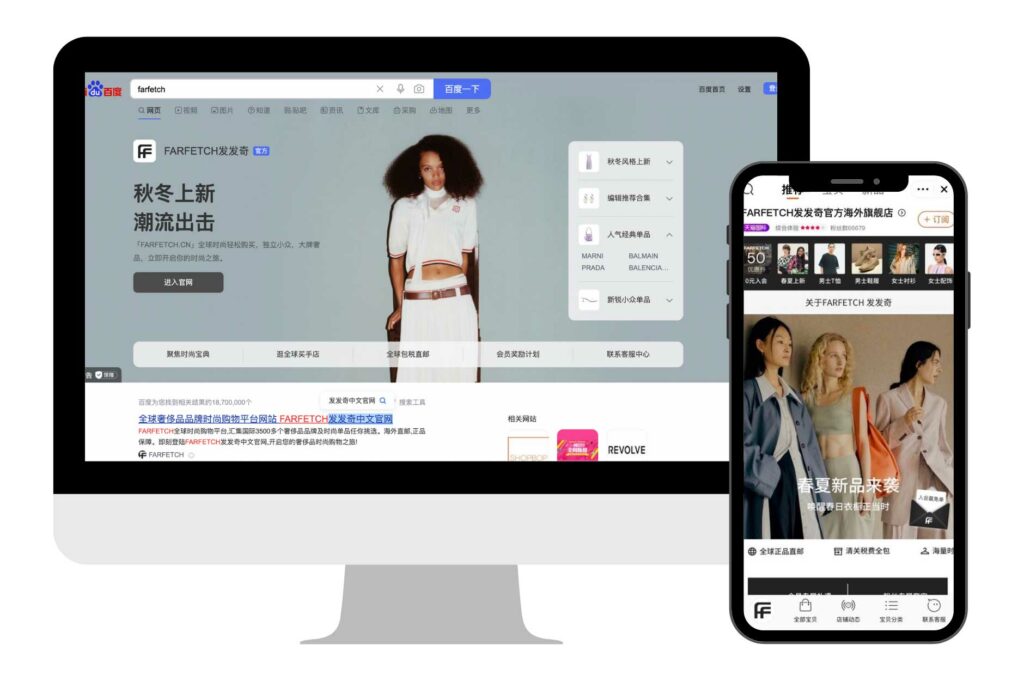
Tips for Brands Selling on Tmall or Tmall Global
Here are a few tips to keep in mind if you’re selling on Tmall or Tmall Global:
- Make sure you have a good understanding of the Chinese market before you start selling on Tmall or Tmall Global.
- Tmall and Tmall Global are operated by different companies, so make sure you understand the differences between the two platforms.
- Tmall Global is focused on international brands, so make sure your products are a good fit for the platform.
- Tmall is best for companies who want to focus on the Chinese domestic market, while Tmall Global is best for companies who want to sell their products to Chinese consumers but are not local China entities.
- Make sure you have a good understanding of the Chinese consumer and what they are looking for in a product.
- Use Alibaba Group’s massive logistics and delivery infrastructure to reach shoppers in remote areas of China.
- Make sure your products are high quality and meet the expectations of Tmall global security.
- Use Chinese social media platforms to promote your products and build up a following among Chinese shoppers.
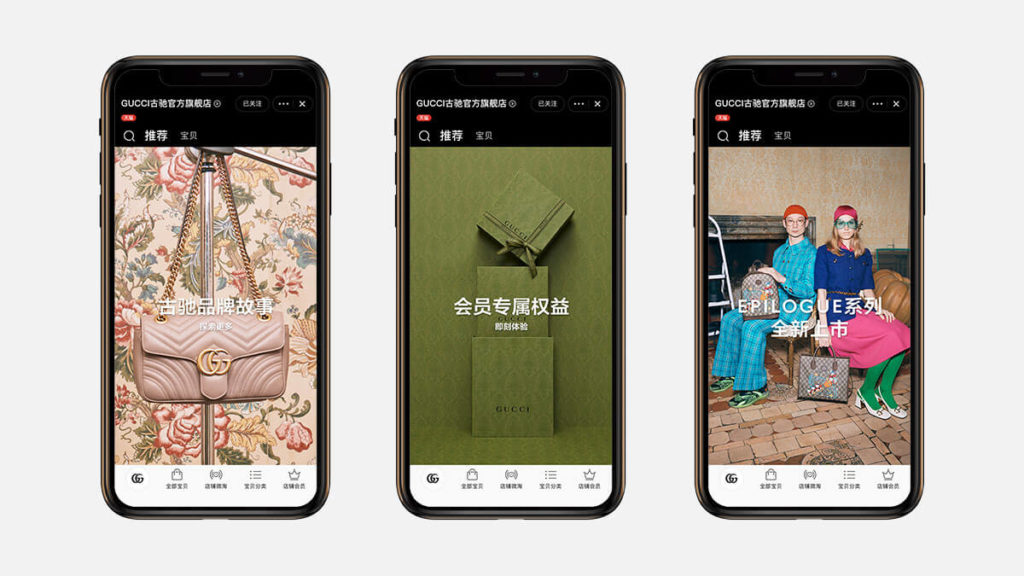
When Selling on Tmall Global, What Challenges Do Fashion Brands Face and How Can They Overcome Them?
Fashion brands that sell on Tmall Global face several challenges, including the need to have a good understanding of the Chinese market, the need to maintain high-quality standards, and the need to use Chinese social media platforms to build up a following among Chinese shoppers.
To overcome these challenges, fashion brands need to make sure they have a good understanding of the Chinese market and the Chinese consumer. They also need to make sure their products are high quality and meet the expectations of Chinese shoppers. Finally, they need to use Chinese social media platforms to promote their products and build up a following among Chinese consumers.
We are a Tmall certified partner!
GMA is a certified Tmall & Tmall Global Partner, we have solutions to help you register and increase your sales/conversion rate on the marketplace!
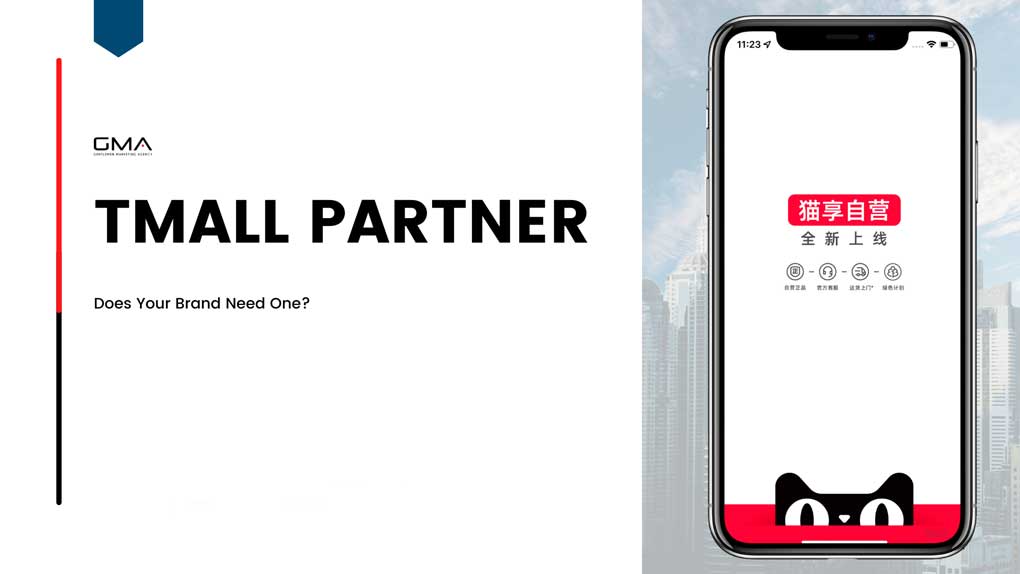
We are a China digital agency with more than 10 years of experience. Our team of Chinese and foreign experts will guide you through the Chinese eCommerce platform landscape and offer the best solutions for Tmall, according to your needs and budget.
Our Tmall services include:
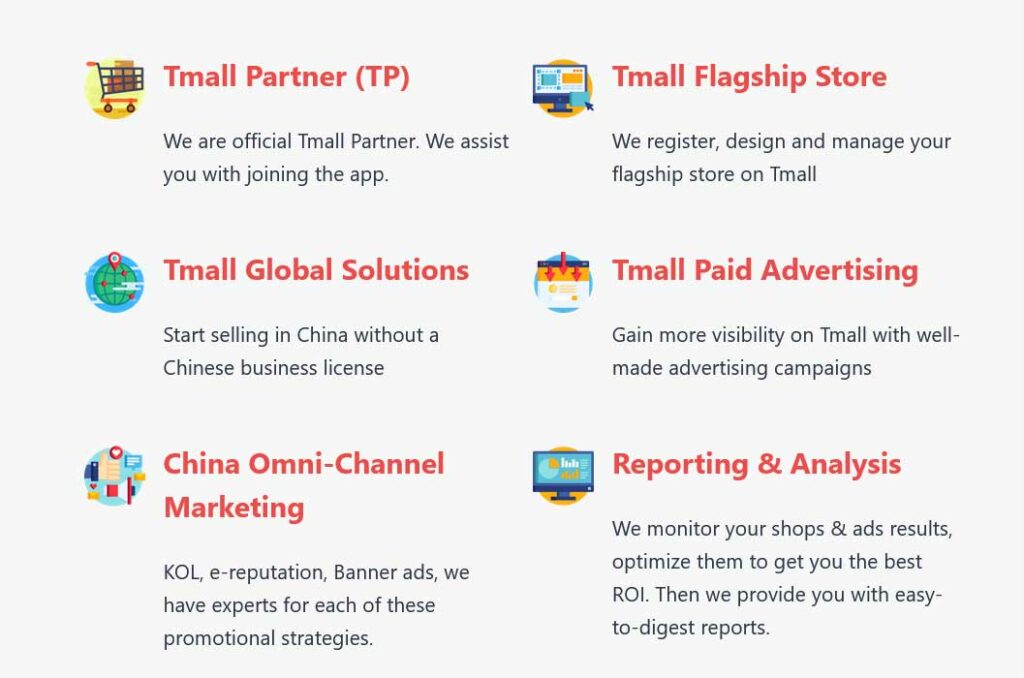
As a certified Tmall Partner, we accompany you through your eCommerce journey in China. Contact us today to learn more about the solutions we have for you!

